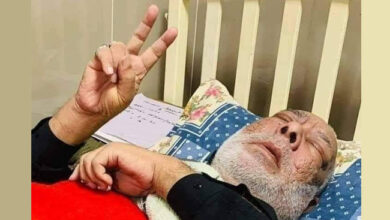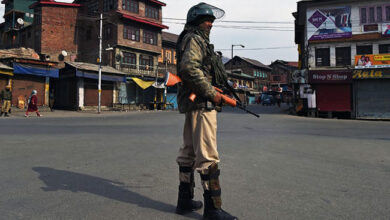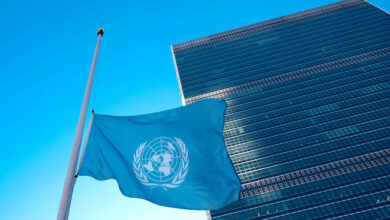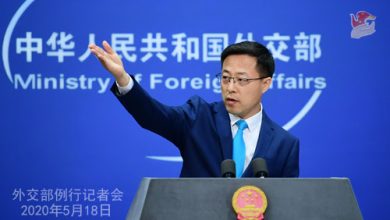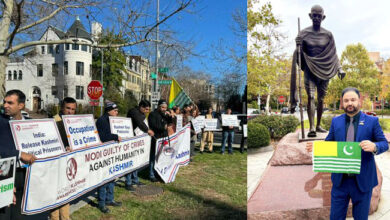Democracy is sliding away in Myanmar, warns top rights investigator
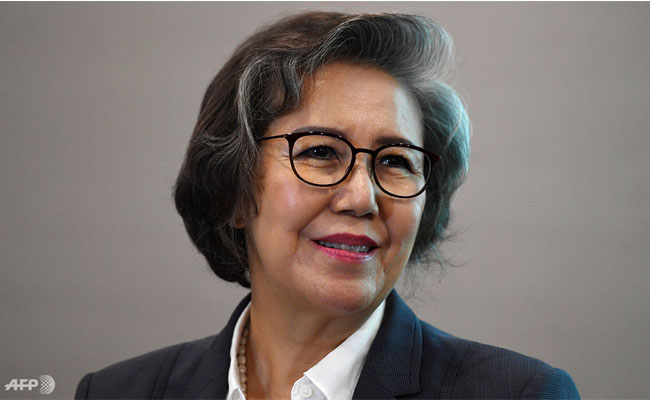
Two-and-a-half years after hundreds of thousands of mainly Muslim ethnic Rohingya fled a campaign of State-led violence, Yanghee Lee said it was no longer enough for the international community to simply monitor grave abuses happening there.
In particular, the Special Rapporteur urged the UN Security Council in New York to establish an international tribunal “to adjudicate the crimes against humanity and war crimes” since 2011.
‘Walk the walk’
“This is where the international community must really walk the walk not talk the talk”, she insisted.
There were still a lot of “old draconian laws” that could be “amended, reformed repealed” by the civilian administration, which rules the country in a power-sharing arrangement with the military, Ms. Lee explained.
Nonetheless, it wasn’t too late for its leader, former rights icon Aung San Suu Kyi, to do something about it,” the independent rights expert maintained.
“There is no evidence that shows that civilian Government is truly genuine about its commitment towards democracy…but when I said it’s not too late, it’s because the civilian Government still has a lot of power if it exercises it power in the right places.”
In addition to Human Rights Council resolutions condemning abuses in Myanmar and calling for victims’ justice, consternation about the alleged massacre of ethnic Rohingya has also led to recent rulings at the International Criminal Court (ICC) and the International Court of Justice (ICJ).
In addition to this last initiative, brought by The Gambia on behalf of the Organisation of Islamic Cooperation (OIC), other countries have also expressed concern, including the Netherlands, Canada and the Maldives.
“I urge others to join in, who are parties to the Genocide Convention”, she said.
Rakhine state violence ongoing
Asked about the situation inside troubled Rakhine State, the Special Rapporteur noted that armed conflict was continuing there between mostly-Rohingya Arakan Army separatists – whose attacks on police posts triggered the mass exodus in August 2017 – and State forces known as the Tatmadaw.
“All sides to the hostilities are responsible for the violations and abuses that happen. But the Tatmadaw is the one that is systematically targeting civilian villages and even cultural sites,” she said, in particular, the Mrauk-U World Heritage Site, which has been destroyed.
Journalists gagged
On the issue of press freedom, the Special Rapporteur condemned new restrictions on journalists, including international wire reporters covering the Tatmadaw’s use of civilians as porters and labourers.
“That is what Reuters has been trying to do and the Tatmadaw doesn’t want them to do any more”, she said.
Energy investment leaving poorest behind
Turning to development challenges inside Myanmar, Ms. Lee acknowledged the Government’s bid to increase electricity supply throughout the country by building coal-fired power stations.
Shan state and Rakhine state needed energy investment, she said, noting that around half of the population doesn’t have access to enough electricity and many areas experience regular blackouts.
“My concern particularly when it comes to oil and gas particularly in relation to Rakhine where a lot of this investment activity is taking place, that Rakhine still remains one of the poorest parts of the country.”
Responding to the Special Rapporteur’s report in the Human Rights Council, Myanmar Progress insisted that despite many challenges, it had been “striving” to build an all-around democratic society.
Efforts had been made on national reconciliation, it insisted, while “battling” hate speech “offline and online” ahead of elections later this year.
Amid appeals for much quicker action from Myanmar to repatriate nearly a million Rohingya refugees from neighbouring Bangladesh, the delegation maintained that this was the first priority of the Government.

